Acting Chief Justice, Ian Chang yesterday struck out Opposition Leader David Granger and Finance Minister Dr Ashni Singh as defendants in the budget cuts case brought by the Attorney General on the ground that they are MPs and can’t be sued, sparking a declaration by APNU that it will contest the decision and accusing the government of not wanting to present witnesses for cross-examination.
The two were struck out as defendants in what is now the matter of the Attorney General versus Speaker of the National Assembly, Raphael Trotman over the historic cuts that had been made to the 2012 budget.
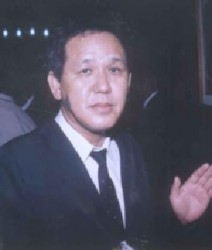
Justice Chang’s ruling will now prevent Cabinet Secretary, Dr Roger Luncheon, from being cross-examined by lawyers representing Granger because he was the respondent who had called upon Luncheon to testify.
Lawyer for Granger, Basil Williams told reporters yesterday that “by pulling out Mr Granger at this stage it means that there is nobody left to call for Luncheon to be cross-examined in the case.”
A Partnership for National Unity (APNU) said in a subsequent release that “despite strenuous requests to be heard on the matter, Justice Chang made his ruling. The learned Chief Justice refused to give APNU’s lawyers a hearing and proceeded with his judgment”. APNU says it intends to mount a vigorous appeal of Justice Chang’s decision.
The party stated that it viewed the ruling as a move to prevent Granger from being heard on the matter. “APNU feels strongly that Brigadier Granger being the Leader of the majority opposition must be a person with an interest in any matter voted on by the National Assembly and taken to the High Court by the Attorney General (AG), and must be heard in any such matter”, the party said.
Williams said that they do not agree with the decision and recalled that in a previous matter involving the AG, Alliance For Change leader, Khemraj Ramjattan, made the point that MPs had immunities and could not be sued but Justice Chang had said that they are not being sued as individuals but in their official capacities. He noted that several cases were brought to the court with Granger as the defendant and were determined.
According to Williams, Luncheon swore to an affidavit in an interlocutory application and all these things were heard but now that the trial is about to start and Dr Luncheon is to be cross-examined, the AG has sought to hide him and has said that affidavit evidence will be led in the case. “But the authorities are clear on that once you want to cross-examine him there can’t be any affidavit. The witness must come,” Williams added.
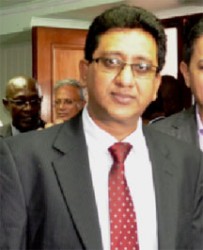
But AG Anil Nandlall is claiming that Williams’ point about cross- examining Luncheon is a waste of time. He said “as I said from the beginning, cross-examination in this matter is unnecessary as this is a matter that involves pure questions of law. The facts which led to the cutting of the budget can be verified by the Hansard (the official parliamentary record).” He continued “the legal issue is does the opposition have the power to reduce the national estimate presented by the Finance Minister? Having the cross-examination of Dr Luncheon is to, I don’t know, elucidate what is a complete waste of time… so I welcome the ruling.”
Allegations
Williams further said that Luncheon made all sorts of allegations in his affidavit such as there would be widespread unemployment as a result of the budget cuts yet they are hiding. He said “how could you accept these people as leaders… they are only there to put things out to the public and when time come for them to defend themselves they hide.”
He told reporters that APNU is very disturbed by the decision because they should have been allowed to participate until the end of the case and then the Chief Justice could have made his decision.
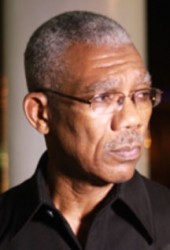
In respect to the Speaker being left as the only defendant in the case, Williams said the Speaker is also a member of the assembly and the ruling should have also applied to him because there is nothing in the constitution that says he is exempted. But Nandlall said the Speaker falls into a different category.
APNU’s release yesterday stated that “APNU attorneys assert that where there is no trial or evidence led, a plaintiff would not be granted a declaration, as is sought by the Attorney General. The plaintiff must prove his case through live evidence of witnesses from the witness box.”
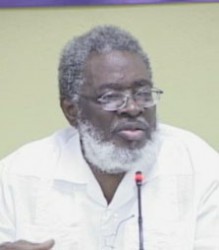
The party is therefore calling on the government to stop hiding behind dubious legal positions and come forward and defend the sworn statements that they have made, the release added.
Nandlall is contending that Granger and Singh should not have been named as parties in the first place and as a result the court’s ruling has excluded them. According to him, what is important is that there has been an agreement in the court that there would have been an agreed statement of fact, once it is agreed upon by all, and that is what will form the facts of the matter as they proceed with the law.
He also said that he hopes the ruling advances the case further so the matter can be brought to an end. The opposition has been calling for a final ruling and now that it is approaching, all manner of things have been coming up, Nandlall charged. Because of this, he argued that the opposition, APNU in particular, is trying to delay and detain the process.
According to Nandlall he had stated previously that “the final ruling (would) not … materially depart from the preliminary ruling and they afraid of that…” The case continues on July 5.
Last year April, the opposition effected $20 billion in cuts from the government’s proposed budget, citing a lack of transparency and accountability in the explanations for the allocations. Although President Donald Ramotar later assented to the budget passed by the National Assembly, Nandlall subsequently moved to the courts to reverse the cuts. Justice Chang, in a preliminary ruling however, said that while the National Assembly did not have the power to cut the budget, the court could not restore the funding sought by government, except for allocations to the Ethnic Relations Commission which is a constitutional agency and entitled to draw directly from the Consolidated Fund.
Similar cuts have since been made to the 2013 budget.
The move by Nandlall for a final decision in the budget case was precipitated by a ruling on April 16 this year by Speaker Trotman upholding the right of the opposition to make cuts to the budget.
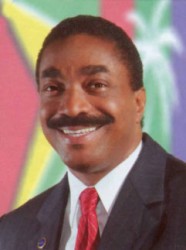
Trotman ruled that the National Assembly had the authority to amend the budget, departing from the findings of Justice Chang’s preliminary ruling last July.
Although the government contended that the interim court ruling on cuts that were made last year had established that the National Assembly could only pass the budget or reject it in its entirety, Trotman said it could not be bound by a “preliminary” decision.
Trotman’s decision came after almost five hours of arguments upon a Motion submitted by Ramjattan, in which he proposed more than $35 billion in cuts to various sectors.
“The National Assembly of the Parliament of Guyana has the power to amend, by reducing only, the Estimates of Expenditure submitted by the Minister responsible for Finance,” Trotman ruled the day after the arguments.
“The political system practiced in Guyana does not negative the authority of the National Assembly to amend Bills and Motions, including those dealing with public finance,” he added, though he cautioned that the power to amend cannot be “used, injudiciously, whimsically, and/or wantonly.”
Trotman also pointed out that those who gave and those who received the instruments of independence could never have intended that such a hallowed right and privilege of the National Assembly to “amend” estimates would be usurped, surrendered, or so given up. Correspondingly, he noted, such an important right must be used responsibly.




